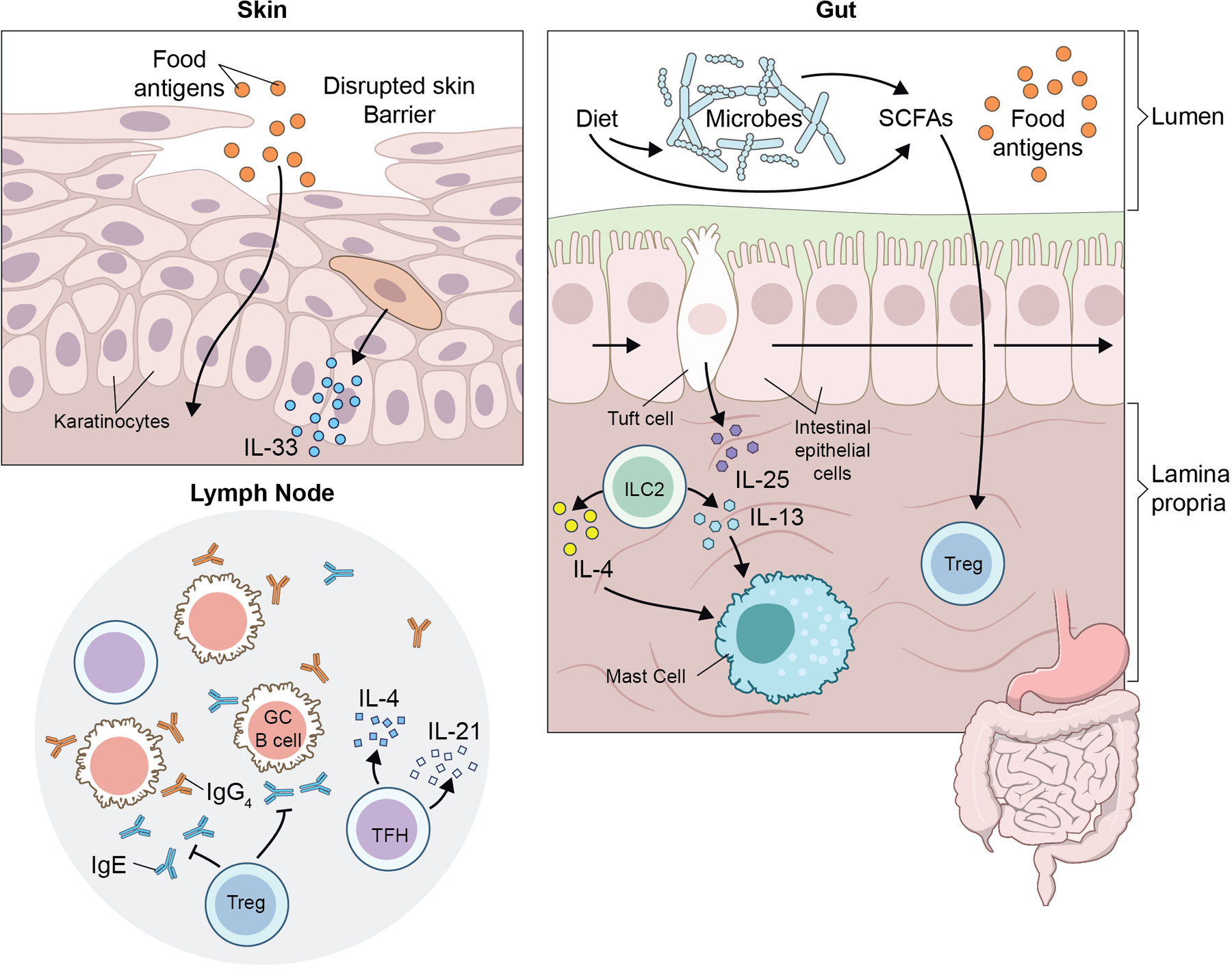Figure 1.

Barrier integrity and environmental factors affect tolerance and sensitization to food antigens. Disruption of the skin barrier leads to increased sensitization to food allergens and keratinocyte production of IL-33. IL-33 can then act in conjuction with Tuft cell derived IL-25 to activate ILC2s in the gut to recruit mast cells, resulting in an increased allergic response. Diet and metabolites produced by commensal microbiota can affect induction of food antigen-specific Treg and Tfh, and thus allergic sensitization. Tfh direct class switching of food-reactive B cells in the germinal center to either protective IgG4 or pro-allergic IgE.
